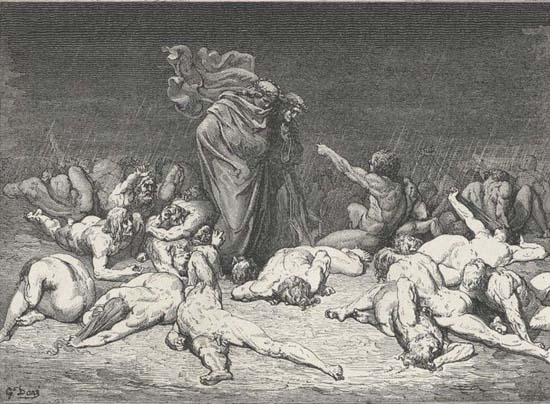Classic
I just read David Denby's Great Books, about twenty years after it was published. (Readers of this blog may know Denby as a film critic I often take to task for pointlessly introducing personal political beliefs into his reviews.) Back in the early 90s, he decided, as a middle-aged man, to go back to his alma mater, Columbia, and take a course in Great Books--actually two, one for literature, one for philosophy. He'd reread all those classics (and a few new ones) to see how they stacked up, and how they compared to his memories as a student decades earlier.
Not a bad premise. I remember taking a Great Books course, not unlike Columbia's, when I was a student. It was an exciting journey, and those books, not to mention others on the classics list we didn't have time for, have never been completely absent from my thoughts. Reading them can take you out of yourself, making present-day issues seem as small as they actually are. You can see the great conversation firsthand--how ideas originated and were developed and fought over, ideas that still shape our world. You can even take part in the conversation.
Denby gets to relive that journey, often surprised by what he didn't see the first time around, or at least didn't remember. Most fill him with excitement, and some writers and thinkers he dismissed come back with surprising power (while a few fall short--sorry Goethe). The course starts with the Greeks, and as much as the Western world seems to begin with them, they are still startlingly foreign. Homer is exceedingly violent, and his heroes kill without mercy. Aeschylus, Sophocles and Euripides take what were even for them old tales and turn them inside out to look at the human condition. Plato and Aristotle ponder the basic questions of ethics and give answers that still challenge us.
Then comes Virgil, and the Bible, and the beginnings of the modern era with Dante, Machiavelli, Hobbes, Locke and so on. The we start getting into those who almost feel like contemporaries--Rousseau, Hegel, Austen, Marx, Mill, Nietzsche, etc. Finally there are the new additions to the canon, such as Beauvoir and Woolf.
Denby does several things in the book, some better than others. He's good at describing the books--what they're about and how radical and exciting their ideas are (not that I always agree with his interpretations). He's also pretty good at evoking what the classes are like--the personalities of the professors and the students. Then there's a subplot that runs through the book--the canon, indeed the idea of a canon, is under attack for being the hegemonic gasp of dead white males, and Denby ably describes the fight. He's on the side of the classics, but concedes some points of others who'd broaden or destroy the concept of great books.
Less interesting is Denby associating the books with moments in his life. Now this may have been what sold the idea--I'm not just going to read the books, I'll explain what they mean to me personally, relating them to personal incidents. This isn't a mistake, exactly, but a little of it goes a long way. So if Denby wants to mention how Hobbes reminds him of how he once got mugged, or how King Lear made him think of his mother's death, I can see that. But pages and pages of this takes us away from the books, and into less interesting autobiography.
Far worse is his need to note his views on present-day political issues. It's not as if this deepens his or our view of the books, so much as gives him a chance to rant. These passages were probably bad enough when the book came out, but to read him today fulminating on American politics in the mid-90s is beyond tiresome. Particularly bad are his predictable attacks on conservatives. He sometimes takes the left to task, but with a certain sympathy, while modern conservatives are just evil fools. For instance, in a chapter on Nietzsche, out of nowhere he starts complaining about the GOP's plans to reform welfare, explaining how hateful it is and how it will (will, not might) fail in its stated goal if adopted. Welfare reform passed and has since gone on to be considered one of the major successes of 90s politics--and, by the way, is seen as a bipartisan success, since President Clinton signed it. (There's no mention of Clinton anywhere in the book except a parenthetical remark where Denby wishes he understood power better, implying poor Bill is too nice with those nasty Republicans, who'll stop at nothing.)
So half a thumb up. The wonderful thing about great books is, even as they relate to your life, they can take you above it. Denby often succeeds in getting this across, but not always.




3 Comments:
So the great books say conservatives are evil fools too? Cool
We love you, Anonymous.
ISIS is a problem, an interesting and horrible problem, indeed.
But what do you really hate, really, really hate? Why, conservatives. Not just evil, but . . . stoopid!
I'd love to see the study that explains that. The best I can do is it's a hard core case of projection. Virtually everything you can see that conservatives are doing . . . you do with abandon, vehemence and the joy of righteousness.
That which was to be proven
(and tetchy too)
Post a Comment
<< Home